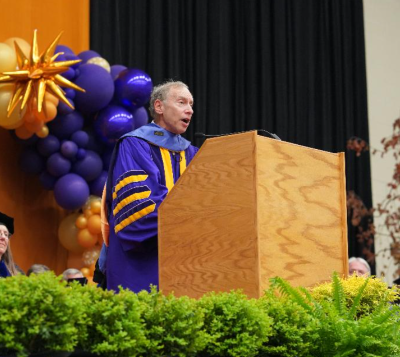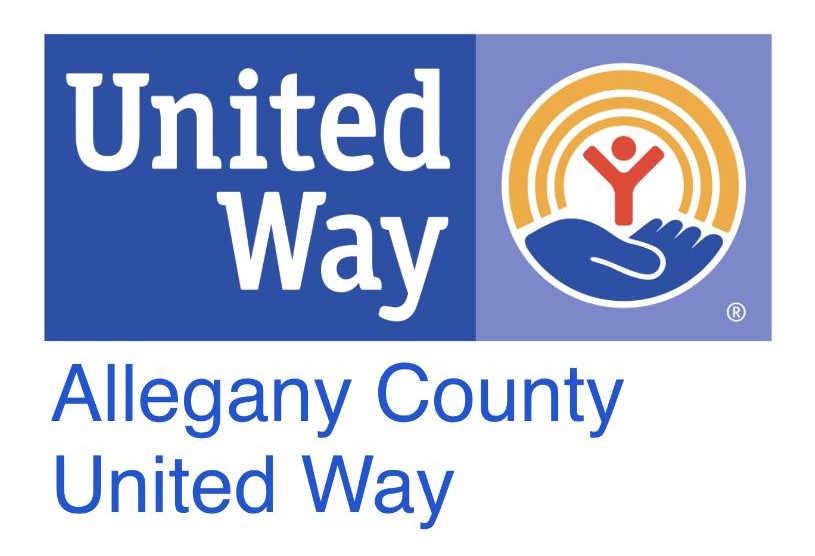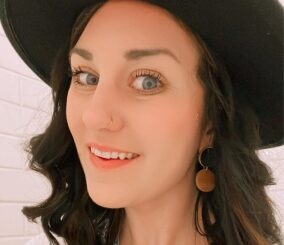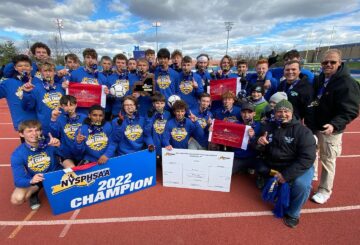Dr. Robert S. Langer gives keynote address to graduates
Wellsville’s Charlie Joyce, Dr. Robert S. Langer receive honorary degrees
Moderna co-founder advises Alfred University graduates to pursue passion, make world better in keynote address
Dr. Robert S. Langer, world-renowned biomedical engineer and co-founder of more than 40 biotechnology companies including COVID-19 vaccine maker Moderna, has followed four guiding principles throughout his career as a research scientist.
On Saturday, May 14, Langer—a professor in the Massachusetts Institute of Technology Departments of Chemical Engineering and Biological Engineering, and faculty member in MIT’s David H. Koch Institute of Integrative Cancer Research—delivered the keynote address at Alfred University’s 186th Commencement, relating to graduates the role those principles have played in his professional success.
Langer is viewed as the founder of the field of tissue engineering in regenerative medicine, and is the pioneer of hundreds of technologies, including controlled release and transdermal drug delivery systems, which allow for the non-invasive administration of drugs through the skin.
“I hope to leave you with some simple messages,” Langer said. “First when you choose a job, follow your passion—choose something you love, not what makes the most money. Second, try to dream big dreams—dreams that can change the world and make it a better place. Third, oftentimes you will run into roadblocks but, no matter how bad things look, don’t give up. And fourth—treat all people with respect and kindness.”
Langer earned his bachelor’s degree in chemical engineering from Cornell University and his doctoral degree, also in chemical engineering, from MIT. He said when he finished his graduate studies, he was unsure what to do professionally. It was in the 1970s, when gasoline was in high demand, and professionals in his field were being paid well to work for oil companies. “I got 20 job offers from oil companies—four from Exxon alone,” he said. On a flight home from an interview with Exxon in Louisiana, he realized that was not the career path he wanted to follow.
“What did I want to do?” he asked. “Well, I had this dream of using my background to improve people’s lives.”
To that end, Langer would take a position as a researcher at Harvard and Boston Children’s Hospital, where he would work on two related problems: trying to discover the first substance that could stop cancer blood vessels from growing (and thus stop tumor growth); and developing tiny particles – called microparticles and nanoparticles – that might be able to deliver these and other large molecular weight substances such as proteins or RNA to the body.
While the research was met with skepticism in the scientific community, Langer persevered.
His research led the discovery of the first blood vessel inhibitors which fight cancer. It took 28 years from his earliest publication in this area—a 1976 article in the Journal of Science— until the U.S. Food and Drug Administration approved the first blood vessel inhibitor. Today, such inhibitors, like Avastin, Lucentis, and Eylea, are among the most successful biopharmaceuticals in the world for treating cancer and eye diseases such as macular degeneration. They have been used to treat hundreds of millions of patients.
“When we started developing vaccines to treat COVID, the Boston Globe ran a front-page article on this entitled “This is not how you do science” with my picture underneath it,” Langer recalled. “But Moderna and its terrific employees, some of whom are my former students, never gave up. Today the Moderna vaccine and one somewhat like it made by Pfizer and BioNTech – also using nanoparticles – is used all over the world.”
Langer’s final piece of advice to graduates involved how they treat others.
“Many people ask me why the people in our lab have done well,” he said. “I like to think it’s because we’ve tried to treat everyone with respect and kindness; treating people the way you hope they would treat you. No matter what you do with your life career-wise, there is nothing more important than being a good, caring human being.”
Langer received a Doctor of Science degree, honoris causa, for his work in biomedical engineering research. He holds more than 1,400 granted or pending patents, which have been licensed or sublicensed to more than 400 companies. He is the author of more than 1,500 articles, and with more than 363,000 citations, he is the most cited engineer in history and fourth most cited individual in any field of academic research. He is recipient of 36 honorary degrees and has been elected to the National Academy of Sciences, the National Academy of Engineering, National Academy of Medicine, and the National Academy of Inventors.
Charlie Joyce, a Wellsville, NY, resident and member of the University’s Board of Trustees, was also awarded an honorary degree Saturday.
Joyce, past president and CEO of Otis Eastern Corp.—one of the energy industry’s leaders in the construction of pipelines transporting oil, natural gas, and petroleum products—received a Doctor of Commerce degree, honoris causa.
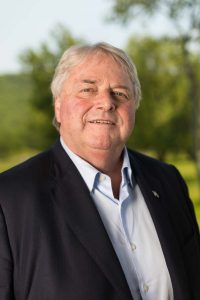
A member of the Alfred University Board of Trustees since 2001, Joyce has been a generous supporter of the University. He and Alfred University alumna Sherry Walton ’80, ’88 MS Ed. provided funding for the Joyce & Walton Center, which opened in 2014, and the Joyce & Walton Strength and Conditioning Center, which opened in 2018.
A generous commitment from Joyce and Walton in 2018 helped provide support to attract Alfred University’s next vice president of Student Affairs; helped launch Alfred University’s new leadership minor; and underwrote the offering of the “LEAD 301: Improving Alfred University” course taught by the dean of the Inamori School of Engineering and the president of Alfred University. Joyce joined with fellow trustee Marlin Miller ’54, HD ’89, ’19 to underwrite the hiring of a consulting firm to help Alfred University develop a residence life master plan. In 2018, Joyce made a generous commitment of $2 million toward enhancing Alfred University’s athletic facilities on Jericho Hill.
Joyce—a resident of Wellsville and native of nearby Andover, NY— has long been active in supporting charitable organizations in the Wellsville community. In 2012 his philanthropy established the Catholic Charities Food Pantry of Wellsville. In November 2019, he was honored for his selfless support of others as Catholic Charities renamed its Wellsville food pantry the Joyce Family Food Pantry and Outreach.
“It is very humbling to be on the same stage as my fellow honorary degree recipients,” said Joyce, who recognized his fellow trustees and members of his family in attendance.
Joyce remarked that while he is not an Alfred University graduate, the University has long been a part of his life—he recalled growing up in Andover and skipping school each year to attend the annual St. Patrick’s Day parade in Alfred—and he noted the vital role the University plays in the economic well-being of the largely rural Southern Tier of western New York.
“The University serves as a cornerstone to the region. It has a huge impact on the quality of life in the area,” Joyce said. The importance of Alfred University to the region is why Joyce serves on the Board and supports the University through his philanthropy.
“I’ve been a trustee for more than 21 years. We’ve faced a lot of challenges, COVID being the most complex,” he commented. “One thing that has been consistent has been the dedication and love for this University by our trustees, the students, faculty, and students. “We always ask, ‘How can we make Alfred better for the students?’ That’s what makes this place so special.”


